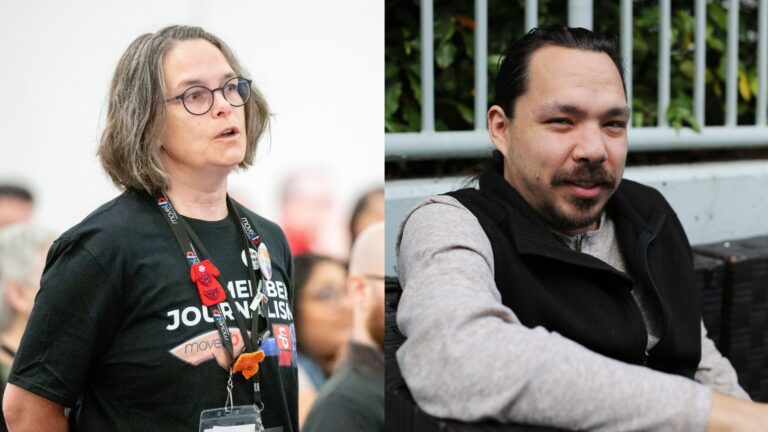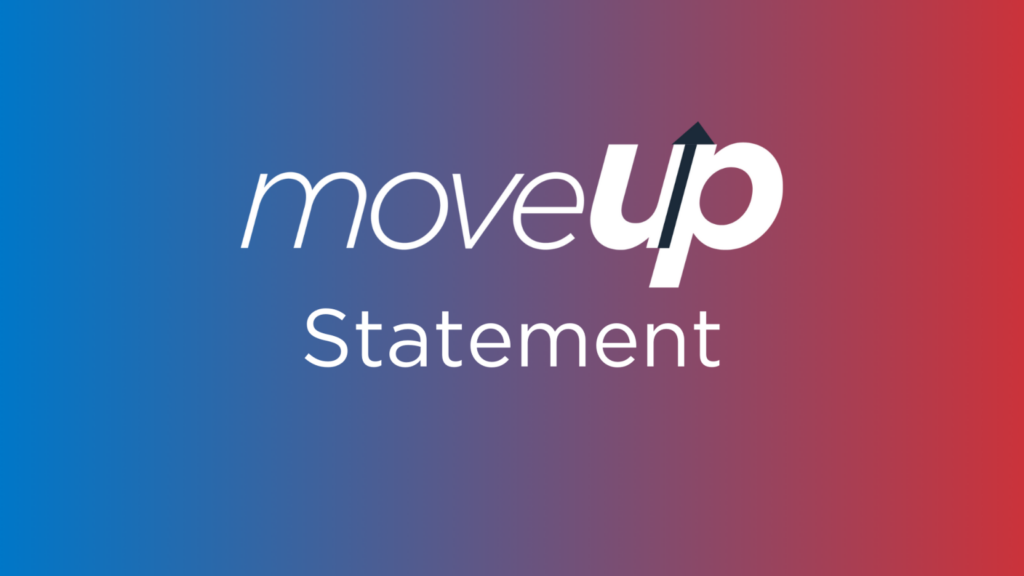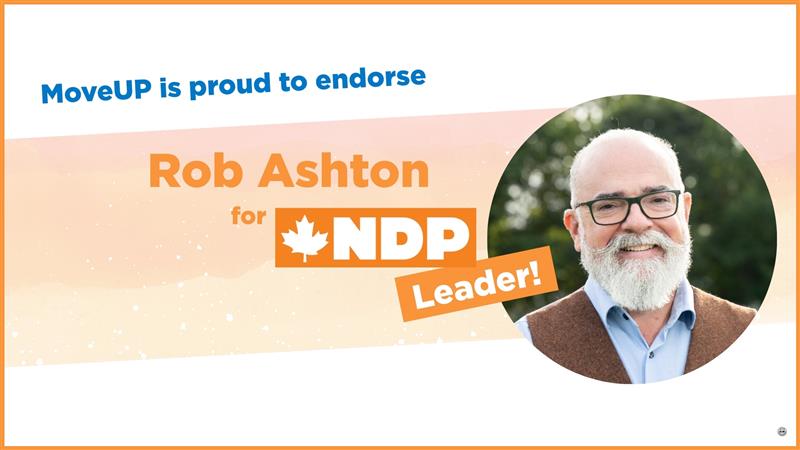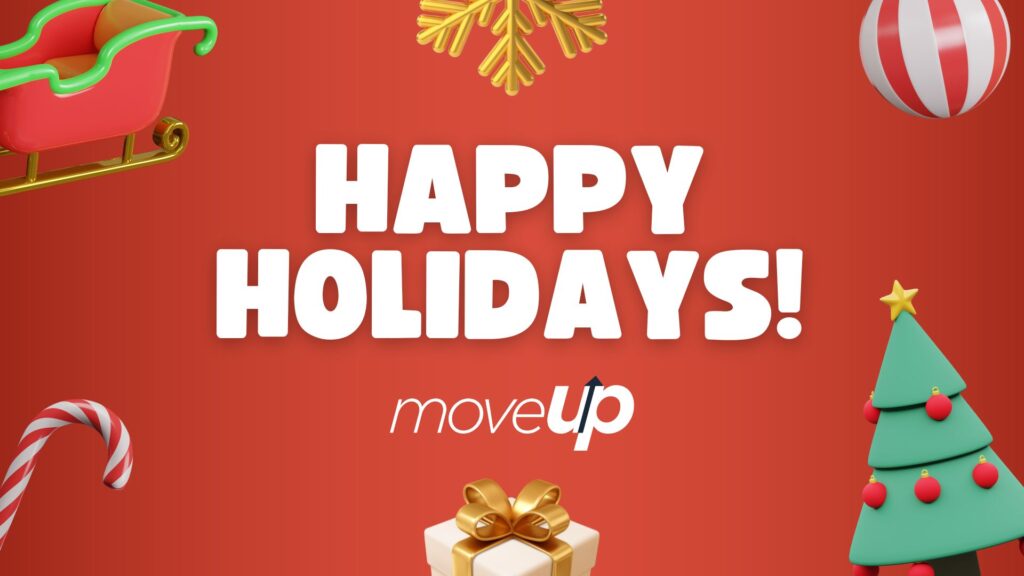By Shona Dion, MoveUP Member Journalist
Photo: MoveUP member journalist Shona Dion (left) and MoveUP executive councillor Jacob Parnell
I recently came across an unsettling article about BC Conservatives leader John Rustad, whose potential actions, if the Conservatives are elected, could undermine Indigenous land agreements. The fear that he might go back on hard-won agreements concerning land title has resurfaced. What struck me most is the lack of awareness and understanding around what land title truly means.
As a settler in Canada, I can’t fully explain it myself, but as I am on a continuous journey of learning and unlearning, I can share my growing knowledge. I invite you to also search for the truth, especially in these complex and often uncomfortable areas. Why speak on a topic I’m not an expert on?
Part of the Member Journalism program is to be present and listen to the stories of our members. At this point in time, the question of land title is incredibly important. By listening, I can take on some of the burden of sharing information. But I am getting ahead of myself
Introductions first.
I’m a first-generation Canadian on my mother’s side. She was born in Scotland and came to Canada at the age of eight. My father grew up in a small French farming community in Northern Alberta, though his ancestry can be traced back to the Jesuits who arrived from France in the 1700s.
I was recently challenged by Indigenous educators during my time at the Labour College of Canada. They encouraged me to learn more and to take meaningful action beyond just performing land acknowledgements. What I’ve discovered through this process is that Indigenous communities are generous with their knowledge, but gaining true understanding requires time, reflection, and a willingness to confront Canada’s history, with all its difficult truths.
Canada’s Indigenous history is as diverse as its geography, with no two nations being the same. What I’ve learned over the past two years is that caretaking—of land, water, and community—is central to all Indigenous cultures. This mindset is in sharp contrast to the destructive colonial forces that have historically plundered these lands for resources. Understanding this contrast is crucial to countering the fear and misinformation around Indigenous land title.
This introduction may seem long, but it’s important for me to establish that I am not an expert, just a learner. I’m sharing my journey of discovery, informed by conversations with First Nations people. One such conversation was with Jacob Parnell, a MoveUP member who works at ICBC in the Lower Mainland. Jacob is Haida from Haida Gwaii.
I would like to start by expressing my deep gratitude for the time and the care that Jacob has given me to share his knowledge.
In early 2024, the citizens of Haida Gwaii approved the “Rising Tide” Haida Title Lands Agreement, an agreement between the Haida Nation and the Government of British Columbia. It recognizes the inherent title of the Haida over their land. But what does that mean for the Haida people, and why is the BC provincial election so significant for this issue?
Jacob shared with me that his community has always cared for their land and waters since time immemorial. When logging efforts escalated in the 1980s, the Haida resisted to regain control of their natural resources. For over 50 years, the Council of the Haida Nation, the elected governing body of Haida Gwaii, fought for jurisdiction over their territory to protect it from exploitation.
“We have already been in partnership. We are already protecting these parks. We have always been protecting these lands,” said Jacob, emphasizing that the Haida have never stopped being stewards of both the land and the ocean.
The Haida’s battle for land title arose from the need to stop the rampant destruction of old-growth forests. Clearcutting devastated these ecosystems, leaving behind damaged lands and unused timber. The Haida would often return to these sites to salvage whatever they could, redistributing wood to their elders.
“There was so much damage from clearcutting and no attempt to clean up once they were done,” explained Jacob. “So much good timber left behind to rot.”
In 1993, the Gwaii Haanas National Park was established to bring an end to unfettered clearcutting in the region and create a land management plan.
Jacob explained that the agreement with the government gives the Haida more autonomy over their land, allowing them to manage it without the restrictive oversight of government bureaucracy.
“It will free up a lot of what we can do on our own traditional territory. The government has many restrictions and many different processes. We wish to manage our own land without them leaning over us and hindering our movements.”
In 2010, the Kunst’aa guu- Kunst’aayah Reconciliation Protocol introduced another level of decision-making on Haida Gwaii.
Jacob’s father was part of the legal team that secured the Haida Nation’s first major victory against the federal government, a fight for the right to have a say over their waters and forests.
The Delgamuukw Decision in 1997 recognized that Indigenous (they use the term “Aboriginal”) title included land rights. This legacy of activism is something Jacob himself continues, having served as a Watchman—a historic role in the Haida community that has evolved into one of ecological guardianship. His great-grandmother, grandmother, and other family members were all Watchmen in their time.
But make no mistake: the Haida Land Title Agreement isn’t about taking land from others. The Haida fought to regain management of their land because colonial practices had decimated their communities. They’ve always been the ones on the front lines, protecting their environment.
“We have been fighting really hard for years,” said Jacob. “The government and the logging companies kept breaking their contracts, pushing past the boundaries that were agreed upon, and logging outside the boundaries. They constantly overstepped and used their power to take and take. They are not the ones with boots on the ground. We have always been protecting.
“We have our own laws, ‘yahguudang’, respect for all things. You walk your life on the edge of a knife, everything in balance. There are consequences for taking too much. The belief is that you take in moderation.”
Jacob also spoke about the painful history of residential schools.
“Our history, just in general, is nuts! It went on for too long, far longer than people know.”
Jacob’s father was a survivor, and even after the last school closed in 1996, the systemic oppression continued through harmful child welfare practices. These struggles continue, and the Haida Nation remains vigilant.
“The slow pace of government action is frustrating,” Jacob said. “But we’ve been at this so long that we take the wins when they come.”
Each time they meet with the government, they fight for more—not just small concessions—to be put back on the bargaining table. Each protocol or agreement builds upon the previous layer to increase the level of Haida self-governance. The threat remains that politicians, like Rustad, who misunderstand or misrepresent Indigenous issues, could undo years of progress.
Opposition to Indigenous autonomy often thrives on ignorance and fear. There’s a myth that First Nations people want to take land away from non-Indigenous Canadians, but this couldn’t be further from the truth. Canadians must seek out the truth for themselves, as it is readily available. The Indigenous community has always been willing to share their knowledge with those who wish to learn.
John Rustad’s stance, which plays on these misconceptions, stirs up unnecessary fear. But if we educate ourselves, we can confront this fear with knowledge. I urge you to read, listen, and learn—whether it’s the Haida Title Lands Agreement or the Indian Act—because understanding is the path forward.
The conversation about land title is not just an Indigenous issue; it is a Canadian one. We all have a responsibility to understand the legacy of colonialism and work toward justice.
Resources
Council of the Haida Nation
Council of the Haida Nation: Watchmen
“ANALYSIS: Looking Back: 1985 Logging Blockade on Athlii Gwaii.” The Griffins Nest.
Agreement on Haida Aboriginal Title
Agreement on Haida Aboriginal Title Fact Sheet
“Rustad wants BC Indigenous rights law repealed. Chief sees that as 40 year setback.” Chek News.
“‘It’s path-breaking’: British Columbia’s blueprint for decolonisation.” The Guardian.



